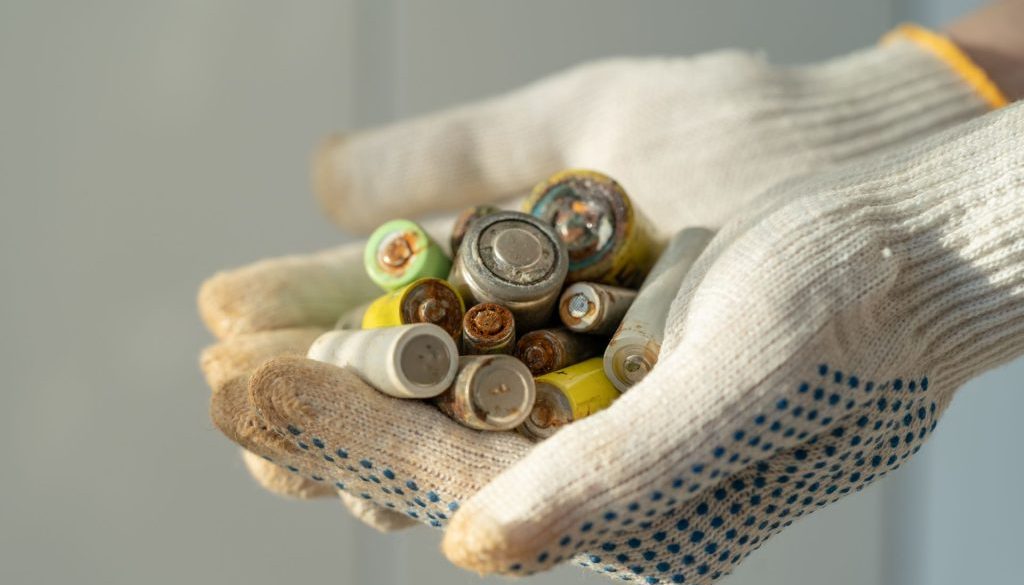Batteries are an essential part of our daily lives, powering everything from smartphones and laptops to power tools and household appliances. As these devices reach the end of their life cycle, proper battery disposal becomes a crucial consideration for both the environment and public safety. Unfortunately, many batteries still end up in landfills or are not disposed of properly, leading to various environmental hazards and potential harm to human health.
As a family-run skip hire and aggregate company servicing Staffordshire, we are committed to promoting responsible waste management and recycling practices. Our services include not only the provision of skips for various waste materials but also guidance on proper waste management and recycling, which includes the crucial topic of battery disposal. By understanding the significant impact improper battery disposal can have on the environment and public safety, we can better educate and empower our clients to contribute to a cleaner, greener, and safer community.
Today, we will outline the essential steps to proper battery disposal, the importance of recycling centres and drop-off locations, and the role that skip hire services can play in facilitating responsible battery waste management. Armed with this knowledge and supported by our expertise, you can contribute to the ongoing effort to make our communities safer and more environmentally responsible.
1. Understanding Different Types of Batteries and Their Disposal Methods
To manage battery waste responsibly, it is essential to recognise the various types of batteries and their specific disposal methods:
– Alkaline batteries: Typically used in everyday household items like remote controls and toys, these can often be safely disposed of in your regular rubbish, although recycling is encouraged when possible.
– Rechargeable batteries: Commonly found in laptops, smartphones, and power tools, these must be recycled as they contain hazardous materials that can harm the environment.
– Lead-acid batteries: Commonly used in car batteries, these contain toxic lead and acid and must be recycled through proper waste management channels.
– Button cell batteries: Often used in watches and hearing aids, these batteries contain hazardous components such as mercury or lithium and should be taken to a recycling centre for proper disposal.
2. Routes to Responsible Battery Disposal
There are several essential steps and options for responsibly disposing of batteries, no matter the type:
– Local collection points: Many retailers, community centres, and local authorities offer battery recycling collection points or “take-back” services for consumer disposal.
– Household Waste Recycling Centres (HWRCs): Most HWRCs accept various battery types for recycling, providing a convenient option for managing your battery waste.
– Kerbside recycling schemes: In some areas, kerbside recycling schemes may be in place, enabling you to recycle batteries directly from your home.
– Specialty recycling facilities: Certain batteries, especially those used in vehicles, require specific disposal at dedicated recycling facilities.
3. Battery Disposal Best Practices for Businesses and Organisations
For businesses, managing battery waste is critical for compliance with waste regulations and promoting responsible environmental practices:
– Implement a battery recycling programme: Establish a designated battery collection area at your workplace and provide clear instructions for proper disposal.
– Seek professional advice: Consult with a reputable waste management company to ensure that your battery waste is disposed of responsibly and according to regulatory guidelines.
– Raise awareness: Educate employees about the importance of battery recycling and provide them with the necessary information to dispose of batteries properly.
– Monitor and evaluate: Regularly review your battery recycling programme to ensure its effectiveness and make adjustments as needed to maximise recycling rates.
4. The Role of Skip Hire in Battery Disposal and Recycling
Skip hire services can play a significant role in facilitating responsible battery waste disposal and recycling:
– Efficient disposal: Skips can be a practical solution for disposing of large volumes of batteries, especially for businesses and organisations.
– Hazardous waste skips: Some skip hire companies, including ours, offer skips specifically designed for hazardous waste management, providing a secure and compliant solution for disposing of hazardous materials like batteries.
– Expert guidance: Working with a professional skip hire company can help you navigate the complexities of battery waste management, ensuring you adhere to all guidelines and best practices.
Conclusion
Proper battery disposal is vital for protecting our environment and ensuring public safety. By understanding the different battery types and their respective disposal methods, we can all play a part in responsible waste management and recycling. As a family-run skip hire and aggregate company servicing Staffordshire, we at Enviro Skip Hire are dedicated to supporting our clients in managing their waste efficiently and responsibly, including navigating the complexities of battery disposal. If you require assistance with battery waste management or want more information about our range of skips and services, please do not hesitate to contact us today, your go-to expert skip hire providers




